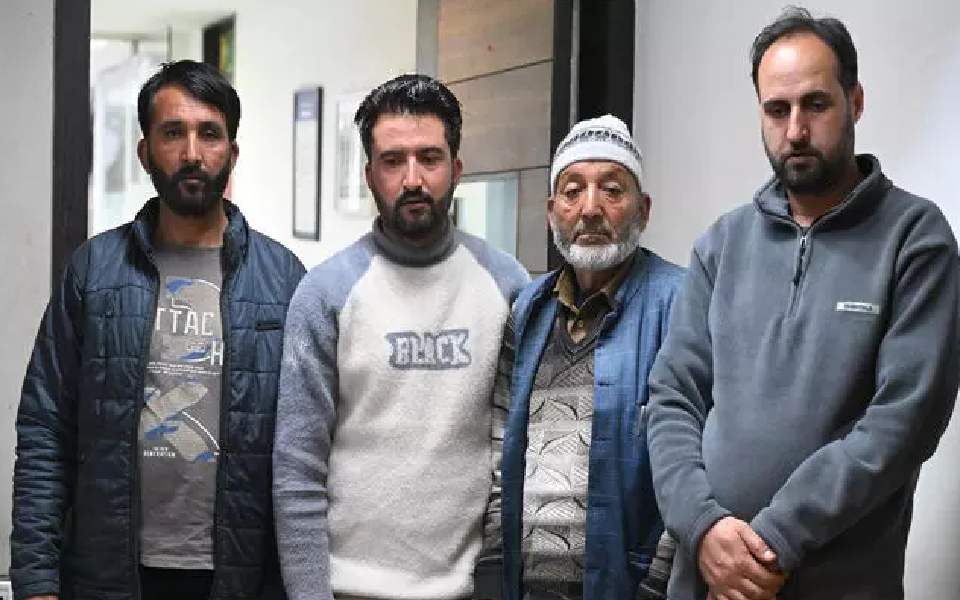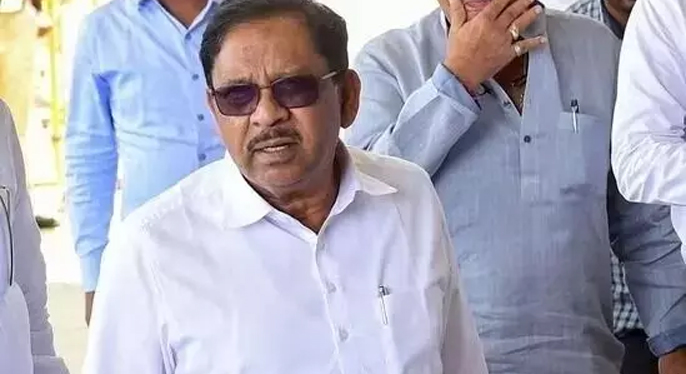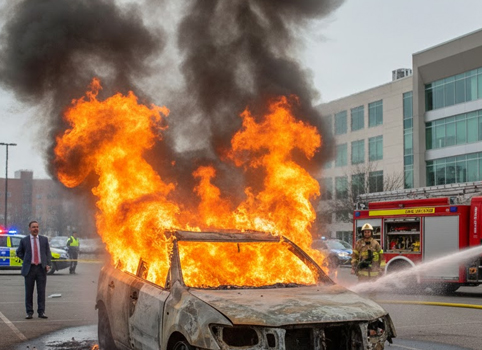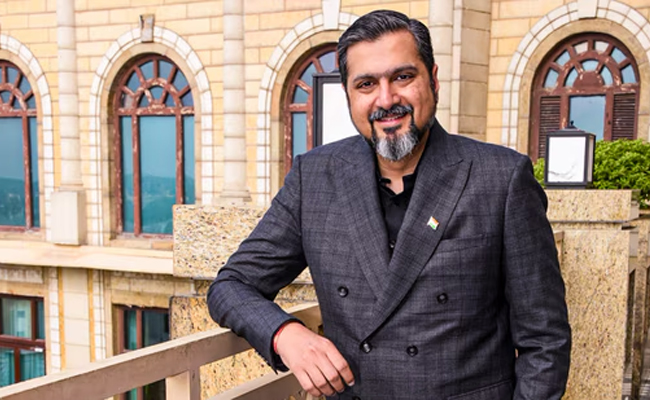Moscow, Feb 16: Alexei Navalny, the fiercest foe of Russian President Vladimir Putin who crusaded against official corruption and staged massive anti-Kremlin protests, died in prison Friday, Russia's prison agency said. He was 47.
The Federal Penitentiary Service said in a statement that Navalny felt unwell after a walk on Friday and lost consciousness. An ambulance arrived to try to rehabilitate him, but he died.
Kremlin spokesman Dmitry Peskov says Putin was informed of Navalny's death and the prison service was looking into the death in line with standard procedures.
Navalny's spokeswoman Kira Yarmysh said on X, the platform formerly known as Twitter, that the politician's team had no confirmation of his death so far and that his lawyer was travelling to the town where he was held.
Navalny, who was serving a 19-year sentence on charges of extremism, was moved in December from his former prison in the Vladimir region of central Russia to to a "special regime" penal colony the highest security level of prisons in Russia above the Artic Circle.
His allies decried the transfer to a colony in the town of Kharp, in the Yamalo-Nenets region about 1,900 kilometers (1,200 miles) northeast of Moscow, as yet another attempt to force Navalny into silence.
The remote region is notorious for long and severe winters. Kharp is about 100 kilometers (60 miles) from Vorkuta, whose coal mines were part of the Soviet gulag prison-camp system.
Navalny had been behind bars since January 2021, when he returned to Moscow after recuperating in Germany from nerve agent poisoning that he blamed on the Kremlin. Before his arrest, he campaigned against official corruption, organized major anti-Kremlin protests and ran for public office.
He had since received three prison sentences, all of which he rejected as politically motivated.
In Putin's Russia, political opponents often faded amid factional disputes or went into exile after imprisonment, suspected poisonings or other heavy repression. But Navalny grew consistently stronger and reached the apex of the opposition through grit, bravado and an acute understanding of how social media could circumvent the Kremlin's suffocation of independent news outlets.
He faced each setback whether it was a physical assault or imprisonment with an intense devotion, confronting dangers with a sardonic wit. That drove him to the bold and fateful move of returning from Germany to Russia and certain arrest.
Navalny was born in Butyn, about 40 kilometers (25 miles) outside Moscow. He received a law degree from People's Friendship University in 1998 and did a fellowship at Yale in 2010.
He gained attention by focusing on corruption in Russia's murky mix of politicians and businesses; one of his early moves was to buy a stake in Russian oil and gas companies to become an activist shareholder and push for transparency. By concentrating on corruption, Navalny's work had a pocketbook appeal to Russians' widespread sense of being cheated, and he carried stronger resonance than more abstract and philosophical concerns about democratic ideals and human rights.
He was convicted in 2013 of embezzlement on what he called a politically motivated prosecution and was sentenced to five years in prison, but the prosecutor's office later surprisingly demanded his release pending appeal. A higher court later gave him a suspended sentence.
The day before the sentence, Navalny had registered as a candidate for Moscow mayor. The opposition saw his release as the result of large protests in the capital of his sentence, but many observers attributed it to a desire by authorities to add a tinge of legitimacy to the mayoral election.
Navalny finished second, an impressive performance against the incumbent who had the backing of Putin's political machine and was popular for improving the capital's infrastructure and aesthetics.
Navalny's popularity increased after the leading charismatic politician, Boris Nemtsov, was shot and killed in 2015 on a bridge near the Kremlin.
Whenever Putin spoke about Navalny, he made it a point to never mention the activist by name, referring to him as "that person" or similar wording, in an apparent effort to diminish his importance.
Let the Truth be known. If you read VB and like VB, please be a VB Supporter and Help us deliver the Truth to one and all.
Tumakuru (PTI): Karnataka Home Minister G Parameshwara on Saturday said his recent remarks on the demolition of properties linked to those involved in narcotics trade were "misunderstood and misinterpreted".
His clarification follows remarks made two days ago on the government's uncompromising crackdown on the drug menace, including action against properties linked to foreign nationals allegedly involved in drug trafficking.
"It is unfortunate. It is taken in the wrong sense. I didn't mean that tomorrow itself I am going to send bulldozers and demolish the houses. That was not my intention. It was wrongly taken," he told reporters here.
Responding to Congress MLC K Abdul Jabbar's question in the legislative council on the growing drug menace in Bengaluru, Davangere and coastal districts, the minister on Thursday detailed the extensive enforcement measures initiated since the Congress government assumed office.
Pointing to the involvement of some foreign nationals, the minister had said, "Many foreign students from African countries have come to Karnataka. They are into the drug business. We catch them and register cases against them, but they want the case to be registered because once the case is registered, we cannot deport them."
"We have gone to the extent of demolishing the rented building where they stay," he had said.





